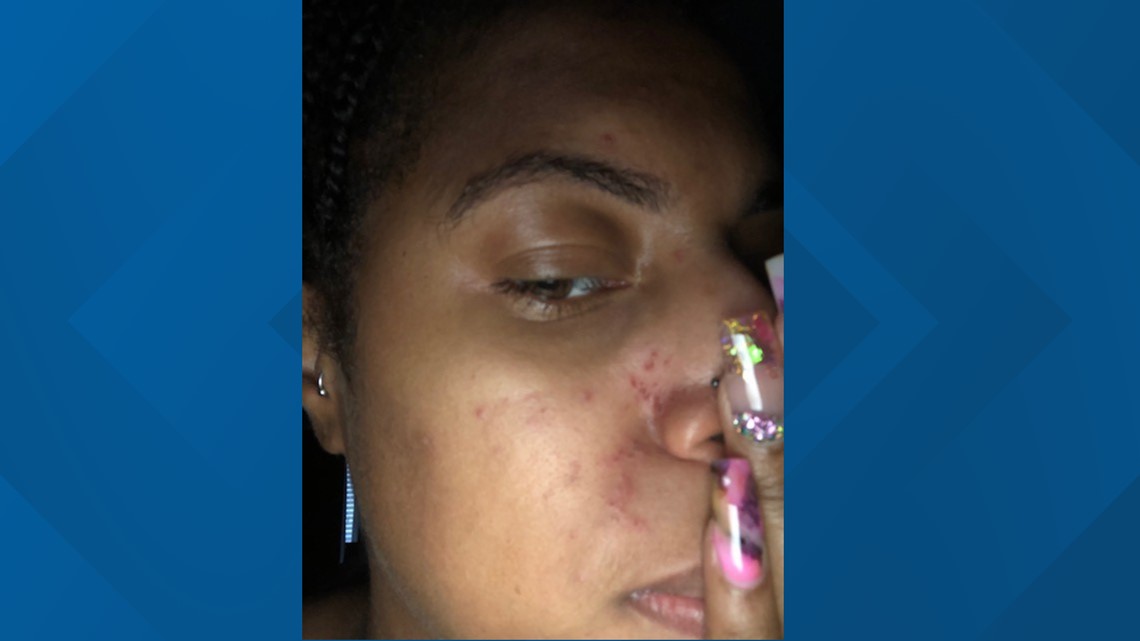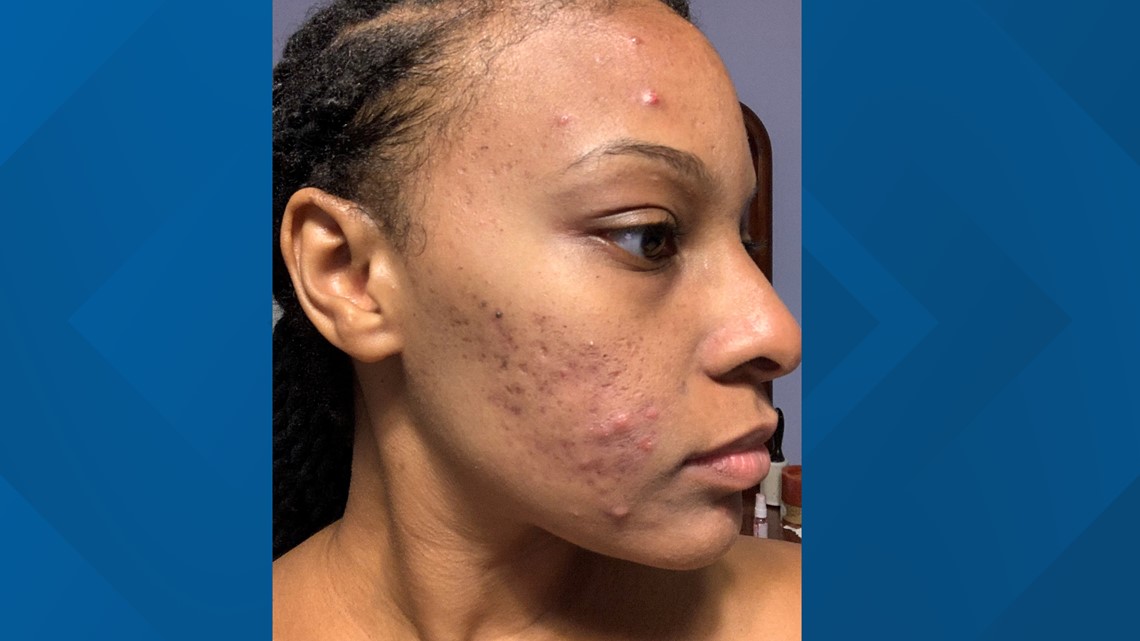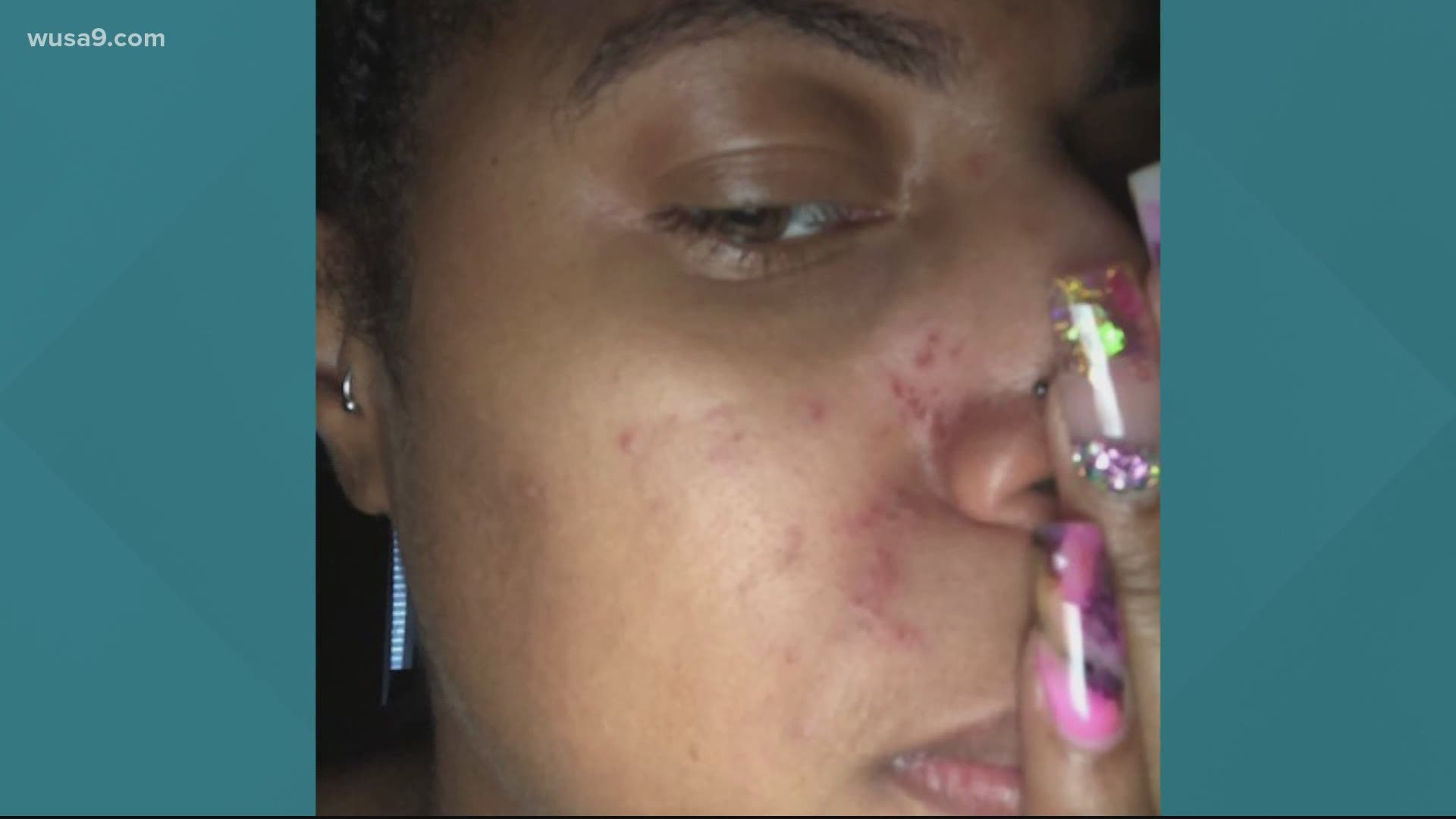WASHINGTON — If you are wearing a mask to prevent the spread of COVID-19, then you have probably experienced a really uncomfortable side effect -- acne. It has become so common, that people are calling it "Maskne." A local dermatologist explains how to treat and prevent it.
With no vaccine and surging coronavirus cases in parts of the U.S., face coverings are here to stay and it's vital to protecting yourself and others in the middle of this pandemic.
But amid the new norm, some people cannot help but notice an itchy, sometimes painful side effect of acne.
Dr. Catharine Lisa Kauffman of Georgetown Dermatology has seen an increase in patients dealing with rashes, pimples and skin irritation induced by wearing face mask daily. The condition is known as acne mechanica or "Maskne."
A mix of heat, friction, oils and bacteria can cause it around the mouth, nose, chin and cheeks.
"We are host to billions of microorganisms on our skin, in our guts, everywhere, and when we wear a mask, the skin gets a little bit warmer and the environment gets a little bit more humid," said Kauffman, who explained that the moisture becomes a breeding ground for bacteria.
"Everyone should wash their face at least once a day, preferably with something that will help get rid of dead skin, bacteria and other dirt that forms at the surface," Kauffman added.
Kauffman suggest using an antimicrobial face wash like benzoyl peroxide to treat the acne. When it comes to moisturizer, here's her advice.
"To help your skin, it's good to put on sunscreen to counteract all the drying agents you may have to use with the maskne," Kauffman explained.
The American Academy of Dermatology offers more ways to treat your skin.
When it comes to the type of face masks, Kauffman said doctors have suggested using 100 percent cotton, but patients could still run into the issue of maskne if it is not washed, or gets sweaty and is not aired out.
“If you let your skin air out when you’re home and when you’re able to, you’ll be able to overcome this without a doubt," she said, but seek medical treatment if it doesn't go away.
Teriah Gaston has little history of acne breakouts and was devastated when a lengthy trip to a clothing store, in her mask, led to one. Between shopping and long lines, she was masked for up to eight hours, the longest she has ever worn one.


The next day, she woke up with pimples around her nose that spread to her cheeks then between her eyes.
"It was kind of depressing because I never went through acne when I was younger," Gaston said. "So, seeing so many bumps at once, basically covering my face, just made me not want to look in the mirror to be honest."
Gaston was treated by a dermatologist and feels like herself again.
Nicole Ebanks wrote into WUSA9 telling us about her experience, too.
"I was puzzled as to why my face was breaking out around my cheeks," Ebanks said. "I did my research and discovered 'maskne' was a thing and that I wasn't the only one dealing with it."


"It's frustrating to deal with it because the breakouts are unforgiving, but are the sacrifices for safety," Ebanks said.
"Please wear your mask," Gaston said. "Like my doctor told me, 'It's better you got this over COVID-19.'"

